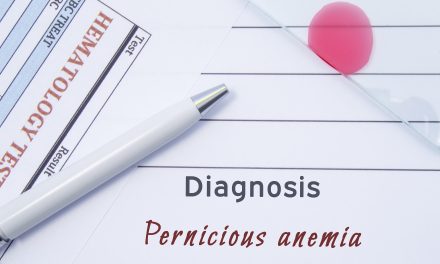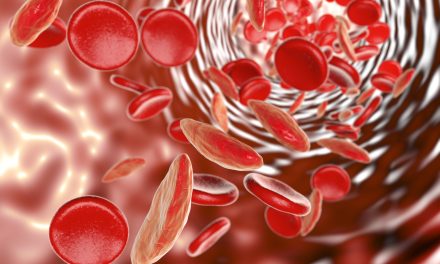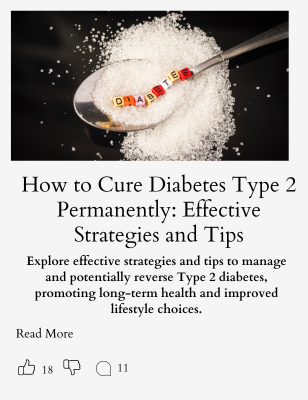Anemia is a condition characterized by a deficiency of red blood cells or hemoglobin in the blood, leading to a reduced oxygen transport capacity that can cause fatigue and other symptoms. During pregnancy, the demand for iron increases to support the growing fetus, expand maternal blood volume, and prepare for postpartum needs. Iron deficiency anemia is the most common type of anemia in pregnancy and can have significant adverse effects on both the mother and the developing baby.

The selection of iron supplements for pregnant women diagnosed with anemia is critical for restoring normal iron levels and preventing complications associated with iron deficiency. Several types of iron supplements are available, including ferrous sulfate, ferrous gluconate, and ferrous fumarate, and each has different dosages and absorption rates. Doctors often consider factors such as the severity of the anemia, patient tolerance, and any pre-existing health conditions when recommending a specific type of iron supplement.
Ensuring the right dosage and managing side effects are vital aspects of supplementing with iron during pregnancy. An appropriate diet is also recommended to naturally boost iron levels alongside supplements. This dietary management may include the intake of iron-rich foods like lean red meat, poultry, fish, leafy green vegetables, and fortified cereals. For an effective treatment regimen, monitoring iron levels throughout pregnancy and postpartum is essential to maintain maternal health and support fetal development.
Key Takeaways
- Iron supplements are essential for pregnant women with anemia to support their increased iron needs and fetal development.
- Different types of iron supplements are tailored to individual needs, efficiency, and tolerance.
- Monitoring and adjusting iron supplementation, maintaining a balanced diet, and regular check-ups are crucial for maternal and fetal health.
Understanding Anemia in Pregnancy
During pregnancy, a woman’s body requires more iron and blood to support the developing fetus. Anemia in pregnancy occurs when the mother does not have enough healthy red blood cells to carry oxygen to her tissues and her baby.
Major Causes:
- Increased Blood Volume: Pregnancy increases blood volume by up to 50%, diluting red blood cells.
- Iron Deficiency: The growing fetus and placenta consume iron, and if the dietary intake is inadequate, anemia can result.
- Folate Deficiency: Essential for fetal development, folate deficiency can also lead to anemia.
Symptoms of Anemia in Pregnancy:
- Fatigue
- Pale skin and mucous membranes
- Rapid heartbeat or palpitations
- Shortness of breath
- Dizziness
It is imperative to identify and treat anemia early in pregnancy to prevent complications such as preterm birth or low birth weight. Prenatal care typically includes screening for anemia with blood tests to measure:
- Hemoglobin levels
- Hematocrit
- Iron levels
Women at higher risk of anemia—those with poor diet, twins or more, or with quick successive pregnancies—may need closer monitoring. A healthcare provider can recommend appropriate iron supplements and dietary changes to manage anemia effectively.
Types of Iron Supplements
Pregnant women require significant amounts of iron to support both their health and the development of the fetus. When dietary intake is insufficient, iron supplements are often recommended. They come in various forms, each with its own absorption rate and potential side effects.
Ferrous Sulfate
The most commonly prescribed iron supplement due to its effectiveness and affordability. It provides a good amount of elemental iron but may cause gastrointestinal side effects in some individuals.
- Elemental Iron: 20-30%
- Common Dosage: 325 mg daily
Ferrous Fumarate
Contains a higher concentration of elemental iron than ferrous sulfate. This often makes it a preferred choice for severe anemia or when higher doses are needed.
- Elemental Iron: ~33%
- Common Dosage: 325 mg daily
Ferrous Gluconate
Typically recommended for those who experience side effects from other forms. It contains less elemental iron, which may reduce gastrointestinal issues but might require a larger dose for the same effect.
- Elemental Iron: ~12%
- Common Dosage: 325 mg daily
Carbonyl Iron
This form is composed of pure iron and is touted for its potentially lower risk of causing gastrointestinal distress. As it is absorbed more slowly, it is considered safer in cases of accidental overdose.
- Elemental Iron: 100%
- Common Dosage: varies
Heme Iron Polypeptide (HIP)
Derived from animal sources, HIP is a type of iron that mimics the way iron is found in meat. It may be more easily absorbed and gentler on the digestive system.
- Elemental Iron: varies
- Common Dosage: as prescribed
Pregnant women should always consult their healthcare provider before starting any supplement, as iron needs can vary greatly based on individual health status and stage of pregnancy.
Importance of Iron in Pregnancy
During pregnancy, maintaining adequate iron levels is crucial for the health of both the mother and fetus. Iron deficiency can lead to anemia, which can pose risks to both.
Role of Iron in Fetal Development
Iron plays a fundamental role in fetal growth and development. It is a vital component of hemoglobin, the protein in red blood cells responsible for transporting oxygen throughout the body, including to the fetus. Inadequate iron levels can lead to insufficient oxygen delivery to fetal tissues, which may impact development.
- Hemoglobin Synthesis: Essential for the creation of red blood cells in the fetus.
- Brain Development: Critical for the proper development of the fetal brain and cognitive abilities.
- Immune Function: Supports the development of the fetal immune system.
Benefits of Adequate Iron Levels
Meeting the iron needs during pregnancy brings significant health benefits to both the mother and the growing fetus. Pregnant women with sufficient iron levels experience better overall health and reduced pregnancy complications.
- Maternal Health: Reduces the risk of iron deficiency anemia, which can cause fatigue and increased susceptibility to infections.
- Birth Outcomes: Associated with healthier birth weights and decreased risk of preterm delivery.
- Postpartum Recovery: Aids in a mother’s recovery post-delivery by replenishing iron stores depleted during childbirth.
Diagnosing Anemia in Pregnancy
During pregnancy, healthcare providers routinely check for anemia. Anemia is diagnosed primarily through a complete blood count (CBC) test, which measures various components of the blood, including:
- Hemoglobin: The protein in red blood cells that carries oxygen. A low hemoglobin level indicates anemia.
- Hematocrit: The ratio of red blood cells to the total blood volume. A lowered hematocrit suggests anemia.
The World Health Organization (WHO) defines anemia in pregnancy as a hemoglobin concentration below 11.0 g/dL in the first and third trimesters and below 10.5 g/dL in the second trimester.
Other laboratory tests may include:
- Mean corpuscular volume (MCV): Indicates the average size of red blood cells. Low MCV suggests iron deficiency anemia.
- Ferritin: Measures the body’s iron stores. Low levels signify depleted iron, confirming iron deficiency anemia.
- Serum iron and total iron binding capacity (TIBC): Evaluate how much iron is in the blood and how much is being transported.
Symptoms of anemia that pregnant women may report include:
- Fatigue and weakness
- Pale skin and mucous membranes
- Shortness of breath
- Dizziness or lightheadedness
Doctors may also perform:
- A physical exam: To check for signs of anemia like paleness of the skin and nail beds, and rapid heartbeat.
- Dietary assessment: To determine if the patient’s diet might be contributing to the condition.
Pregnant individuals who are diagnosed with anemia are often recommended to take iron supplements to restore deficient levels and support the increased blood volume needed during pregnancy.
Recommended Dosage of Iron
During pregnancy, a woman’s body needs more iron to support the growing fetus and placenta, and to increase her blood volume. The typical dosage of iron recommended for pregnant women is 27 milligrams (mg) per day. This dosage is often provided in the form of a prenatal vitamin.
However, when iron-deficiency anemia is diagnosed, the iron dosage may be higher. A healthcare provider may recommend:
- Oral Iron Supplements: Typically in the range of 30-60 mg of elemental iron taken one to three times a day, depending on the severity of anemia and the individual’s levels of iron.
- IV Iron Therapy: In cases of severe anemia or when oral iron is not tolerated, intravenous iron may be administered under medical supervision.
It is crucial for iron supplements to be taken correctly to increase absorption and efficacy:
- On an empty stomach: Iron supplements are best absorbed when taken on an empty stomach. However, if gastrointestinal side effects occur, they may be taken with food.
- With Vitamin C: Taking iron supplements with a source of vitamin C can enhance absorption.
Routine Blood Tests should monitor hemoglobin and ferritin levels to adjust the dosage if necessary, and to avoid excessive iron, which can be harmful. Pregnant women should always consult their healthcare provider before starting any new supplement regimen.
Iron-Rich Foods and Diet
During pregnancy, the body’s need for iron increases to accommodate the growing fetus and to expand the mother’s blood volume. Foods rich in iron should be an integral part of a pregnant woman’s diet.
Natural Sources of Iron:
Red meat, specifically beef and lamb, are excellent sources of heme iron, which is easily absorbed by the body. Pregnant women should aim to include these in their diet while ensuring they are fully cooked to avoid any foodborne illnesses.
For vegetarians or those who prefer not to eat red meat, there are other iron-rich options:
- Legumes: Beans, lentils, chickpeas, and soybeans
- Dark Leafy Greens: Spinach, kale, and Swiss chard
- Nuts and Seeds: Pumpkin, squash, pine, pistachio, and sunflower seeds; almonds and cashews
It is beneficial to combine iron-rich foods with foods high in vitamin C like oranges, bell peppers, and strawberries, as vitamin C enhances iron absorption.
Iron-Fortified Foods:
Many breakfast cereals, bread, and pastas are fortified with iron. These can be an easy way to increase iron intake.
Table of Recommended Iron Sources:
| Food Group | Foods Rich in Iron | Notes |
|---|---|---|
| Meats | Beef, lamb, liver | Ensure proper cooking |
| Legumes | Kidney beans, lentils | Combine with vitamin C for absorption |
| Leafy Greens | Spinach, kale | Best when fresh |
| Nuts and Seeds | Almonds, pumpkin seeds | Great as snacks |
| Fortified Foods | Cereal, pasta | Check labels for iron content |
Pregnant women should aim for a balanced diet that incorporates these iron-rich foods. A healthcare provider may recommend dietary changes or supplementation if iron levels are low.
Iron Supplement Formulations
Iron supplements are essential in treating anemia during pregnancy. They come in various formulations to address specific needs, absorption rates, and patient tolerance.
Oral Iron Supplements
Oral iron supplements are commonly prescribed and come in different forms:
- Ferrous sulfate: This is the standard iron supplement, typically containing about 20% elemental iron.
- Ferrous gluconate: It has a lower concentration of elemental iron but is gentler on the digestive system.
- Ferrous fumarate: It contains a higher concentration of elemental iron.
Patients should take oral supplements on an empty stomach to enhance absorption. They may include Vitamin C to further aid in iron uptake but should avoid taking them with calcium or caffeine, which can interfere with absorption.
Intravenous Iron Therapy
For those who cannot tolerate oral iron or have severe anemia, intravenous (IV) iron therapy might be indicated:
- Iron Dextran: Can be administered in a single dose or over multiple sessions, depending on the individual’s needs.
- Iron Sucrose: Requires multiple sessions but has a lower incidence of allergic reactions.
- Ferric carboxymaltose: Can deliver a high dose of iron with fewer infusion sessions required.
IV iron is faster-acting than oral supplements and is directly available for the body to use, bypassing the gastrointestinal side effects often associated with oral forms.
Addressing Iron Supplement Side Effects
When taking iron supplements during pregnancy, some individuals may experience side effects. It’s important to recognize and manage these appropriately to maintain both maternal and fetal health.
Common Side Effects: They include constipation, nausea, vomiting, diarrhea, or dark stools. To manage these:
- Constipation: Increase dietary fiber through fruits, vegetables, and whole grains, and increase fluid intake. Over-the-counter stool softeners may be helpful.
- Nausea or Vomiting: Taking iron with a small amount of food or switching to a slow-release formulation might reduce these effects. However, avoid taking iron with calcium-rich foods or beverages, as calcium can inhibit iron absorption.
- Diarrhea: Drink ample fluids to stay hydrated. If persistent, consult with a healthcare provider for possible adjustments in iron dosage or formulation.
- Dark Stools: This is a harmless side effect caused by unabsorbed iron and is not a cause for concern.
- Managing Side Effects with Dosing Adjustments:
- Start with a lower dose of iron and gradually increase it.
- Experiment with different forms of iron supplements, such as ferrous sulfate, ferrous gluconate, or ferrous fumarate.
- Divide the total daily dose into smaller, more frequent doses to improve tolerance.
Healthcare providers can suggest alternate supplement types or dosages if these strategies are insufficient. In some instances, intravenous iron may be necessary. Always consult a healthcare provider before making changes to supplement routines. Regular monitoring of iron status is key to ensuring that iron supplementation is both safe and effective.
Safety and Drug Interactions
When considering iron supplements for anemia during pregnancy, safety for both the mother and the developing fetus is paramount. It is essential to use iron supplements that are specifically recommended for pregnancy and to follow healthcare provider instructions precisely.
Important Interactions:
- Calcium: Present in dairy products and certain antacids, calcium can significantly decrease iron absorption. It is recommended to separate the intake of calcium and iron supplements by several hours.
- Caffeine: Commonly found in coffee, tea, and some soft drinks, caffeine may reduce iron absorption. Pregnant individuals should limit caffeine intake in general and avoid taking iron supplements with caffeinated beverages.
Other Substances to Avoid:
- Alcohol: Inhibits proper iron absorption and poses risks to fetal development.
- High Fiber Foods: Can interfere with iron absorption when consumed at the same time as supplements.
Medications that can affect iron supplement efficacy include:
| Medication Type | Examples | Interaction with Iron |
|---|---|---|
| Antibiotics | Tetracycline, Ciprofloxacin | May bind to iron, decreasing effectiveness of both iron and the antibiotic |
| Thyroid Medication | Levothyroxine | Iron can impair absorption; take several hours apart |
| Other Mineral Supplements | Zinc, Magnesium | May compete with iron for absorption; take at different times |
Pregnant individuals should consult with their healthcare provider about all prescription and over-the-counter drugs they are taking to ensure there are no adverse interactions with the iron supplement.
Due to variability in individual health conditions and potential for side effects, such as constipation or nausea, dosing of iron supplements should be personalized. Appropriate monitoring of iron levels throughout pregnancy is also crucial to avoid complications from excess iron, such as gestational diabetes or oxidative stress.
Always consult a healthcare professional before beginning any new supplement regimen to ensure it aligns with specific health needs and consider alternatives if iron supplements cause significant side effects.
Monitoring Iron Levels During Pregnancy
During pregnancy, monitoring iron levels is crucial, as iron is a vital component for both maternal health and fetal development. Pregnant women typically undergo hematological screening as part of their prenatal care. Early in the pregnancy, healthcare providers measure hemoglobin and hematocrit levels to establish a baseline.
Recommended Hematological Tests:
- Initial Screening: Hemoglobin and hematocrit levels.
- Follow-up Screening: Around 24-28 weeks, or earlier if low levels are detected.
- Iron Studies: Including serum iron, total iron-binding capacity (TIBC), and ferritin levels, especially if anemia is suspected.
Healthcare practitioners might advise more frequent monitoring if an initial screening reveals low hemoglobin or hematocrit levels, or if a woman has a history of anemia or symptoms such as fatigue or pallor.
Symptoms Indicating Iron Deficiency:
- Unusual tiredness
- Weakness
- Pale skin
- Shortness of breath
To ensure accurate readings, it’s important for pregnant women to:
- Avoid iron supplementation 24 hours before testing.
- Maintain consistent hydration levels.
- Carefully follow any other instructions from their healthcare provider.
It is vital that pregnant women work closely with their healthcare providers to interpret the results of these tests because even mild iron deficiency anemia can affect pregnancy outcomes. Treatment typically involves dietary modifications and iron supplementation. Prenatal vitamins often contain the recommended daily amount of iron, but some women may require additional iron supplements.
When to Consult a Healthcare Provider
Pregnant individuals should stay vigilant about their health and consult a healthcare provider if they suspect they may be anemic or if they exhibit symptoms consistent with iron deficiency anemia. Key indicators that warrant a healthcare provider’s attention include:
- Persistent Fatigue: Feeling unusually tired or weak despite adequate rest.
- Shortness of Breath: Experiencing difficulty breathing or accelerated heart rate during normal activities.
- Pale Skin, Gums, or Nails: Noticing a lighter complexion or the inside of the lower eyelids appearing less red than usual.
- Dizziness or Lightheadedness: These symptoms may occur when standing up quickly and can suggest a drop in hemoglobin.
If a patient is already diagnosed with anemia, regular follow-ups are critical. They should reach out to their provider if there is:
- No Improvement: If symptoms of anemia persist or worsen after beginning iron supplementation.
- Intolerance to Supplements: Experiencing side effects such as constipation or stomach pain that discourage adherence to the supplement regimen.
Furthermore, the healthcare provider may perform the following:
- Regular Blood Tests: To monitor hemoglobin levels and ensure the effectiveness of the treatment plan.
- Adjustment of Dosage: Tweaking the dosage of supplements depending on the individual response.
It is important for pregnant individuals to understand that self-medication can be dangerous. Only a healthcare provider can confirm the need for iron supplements and ascertain the correct dosage to avoid potential complications, such as iron toxicity.
Frequently Asked Questions
Iron supplements play a crucial role in managing anemia for pregnant women. They ensure the health of both the mother and the developing fetus by preventing iron deficiency.
Which iron supplements are recommended for pregnant women to manage anemia?
Doctors often recommend ferrous sulfate, ferrous gluconate, or ferrous fumarate as iron supplements for pregnant women with anemia. These supplements are widely tolerated and effective in increasing hemoglobin and iron stores.
What is the appropriate time to start and stop iron supplementation during pregnancy?
Iron supplementation should typically begin as soon as pregnancy is confirmed and continue throughout pregnancy. It may also be advised to continue postpartum, as determined by a healthcare provider.
What are the possible side effects of taking iron supplements during pregnancy?
Side effects from iron supplements can include constipation, nausea, vomiting, diarrhea, and dark stools. Pregnant women should consult with their healthcare provider if severe side effects occur.
How much iron and folic acid is advised for pregnant women to prevent anemia?
Healthcare providers generally recommend 27 mg of iron per day. Pregnant women are also advised to take 400 to 800 micrograms of folic acid daily to prevent anemia and birth defects.
What is the daily iron intake requirement for a pregnant woman?
The daily recommended iron intake for pregnant women is 27 mg. This requirement may be higher in cases of iron-deficiency anemia and should be confirmed by a healthcare provider.
Can you provide a list of commonly prescribed iron tablets for pregnant women with anemia?
Commonly prescribed iron tablets for pregnant women include prenatal vitamins with iron, Slow Fe®, Feratab®, and Fergon®. It is important that any iron supplement is prescribed by a healthcare provider to ensure proper dosage and monitoring.
Conclusion
In conclusion, selecting the appropriate iron supplements for anemia in pregnancy is crucial for supporting maternal health. Optimal choices should be based on healthcare professional recommendations and tailored to individual needs. By ensuring proper iron intake through supplements, expectant mothers can effectively manage anemia, support healthy pregnancy outcomes, and promote their own well-being. It is important for pregnant individuals to work closely with healthcare providers to determine the most suitable iron supplementation for their specific circumstances.




















